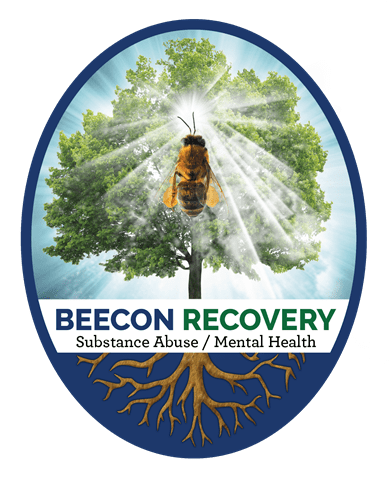Vitamin D plays an essential role in the overall health of individuals. There’s a reason why you may feel happier in the summer than the winter when there is less sun. For individuals going through addiction recovery, having adequate levels of vitamin D is even more important for their overall health.
Here are some signs of a vitamin D deficiency:
- Fatigue: Feelings of exhaustion, weakness, or lethargy
- Muscle Weakness and Pain: Pain in the back, legs, and hips
- Frequent Illnesses and Infections: Susceptibility to infections, colds, and respiratory illnesses
- Depression and Mood Changes: Feelings of depression, anxiety, mood swings, or irritability
- Impaired Wound Healing: Slowed down wound healing and increased infections
- Hair Loss: Hair loss or thinning

Benefits of Vitamin D
There are several physical and mental benefits that can impact individuals in recovery. Let’s take adeeper look into both.Physical Health Benefits
Vitamin D offers a range of physical benefits that are essential for overall health and well-being. One of the primary functions of this vitamin is to regulate calcium and phosphorus absorption, which is crucial for maintaining healthy bones and teeth. Here are some specific physical benefits of vitamin D:
Bone Health
Vitamin D plays a vital role in calcium metabolism, promoting the mineralization of bones and teeth. Adequate levels are essential for preventing conditions like osteoporosis and reducing the risk of fractures. For individuals in addiction recovery, adequate vitamin D levels also support bone strength and healing, which is essential for physical recovery.
Muscle Function
Vitamin D is involved in muscle contraction and strength. Sufficient levels may help improve muscle function and reduce the risk of falls, especially in older adults. This vitamin helps individuals in recovery with muscle function and strength, which can enhance physical performance and facilitate engagement in exercise and recreational activities.
Immune System Support
Vitamin D plays a role in modulating the immune system to help fight off infections and reduce the risk of autoimmune diseases. It may also have anti-inflammatory properties, which can benefit overall immune function. Optimizing vitamin levels support immune function for individuals in recovery, helping to protect against infections and facilitate overall health during recovery.
Cardiovascular Health
Some research suggests that vitamin D may have protective effects on the cardiovascular system, including reducing the risk of heart disease and improving blood pressure regulation.
Mood Regulation
Vitamin D has been linked to mood regulation and mental health. Adequate levels may help reduce the risk of depression and improve overall mood. For those in addiction recovery, it can be very challenging, and mood disturbances are common during the withdrawal and recovery process. Vitamin D’s role in mood regulation may help alleviate symptoms of depression and anxiety, promoting emotional well-being during recovery.

Mental Health Benefits
Vitamin D not only plays a crucial role in physical health but also contributes significantly to mental and emotional well-being. Here are some mental and emotional benefits of vitamin D, particularly relevant to individuals in addiction recovery:
Cognitive Function
Vitamin D has been linked to cognitive function and brain health. Adequate levels may support cognitive processes such as memory, attention, and learning. In addiction recovery, where cognitive impairments or deficits in executive functioning may be present due to substance abuse, optimizing vitamin D status can aid in cognitive rehabilitation and enhance overall mental clarity and focus.
Stress Reduction
Chronic stress is a common trigger for substance abuse and can impede the recovery process. This vitamin has been shown to modulate the body’s stress response system, potentially reducing the physiological and psychological effects of stress. By promoting relaxation and reducing feelings of tension and anxiety, vitamin D can support individuals in addiction recovery in managing stress more effectively and avoiding relapse triggers.
Mood Regulation
Vitamin D receptors are present in areas of the brain involved in mood regulation. Adequate levels have been associated with a lower risk of depression and anxiety. For individuals in recovery, who may experience mood swings and emotional instability during withdrawal and rehabilitation, maintaining optimal vitamin D levels can help stabilize mood and promote emotional resilience.
Social Engagement
Vitamin D deficiency has been linked to social withdrawal and decreased social interaction, while sufficient levels of this vitamin are associated with increased sociability and well-being. In addiction recovery, where social support and connection are crucial for maintaining sobriety and navigating challenges, adequate levels may facilitate social engagement and the establishment of supportive relationships.
Ways to Get More Vitamin D
Here are some ideas to help you get more vitamin D:
- Sun Exposure: Aim for 10-30 minutes of direct sun exposure every day.
- Vitamin D-Fortified Foods: Eat foods with vitamin D, such as milk, orange juice, egg yolks, and fatty fish.
- Supplements: Take a supplement if you have limited sun exposure. Consult a healthcare professional to determine the appropriate dosage.
- UV Lamps: These lamps emit UVB radiation to stimulate vitamin D production in the skin.
- Outdoor Activities: Go for a walk, hike, garden, or another outdoor activity to get sun exposure.
- Healthcare Guidance: Seek guidance from a healthcare professional for personalized recommendations based on your health status, dietary preferences, and lifestyle factors.

Contact Us at Beecon Recovery
Beecon Recovery is here to help individuals in addiction recovery through our therapy programs, ketamine treatments, and other services. We know that recovering from addiction is a very difficult process, so contact us to find more support and resources.





